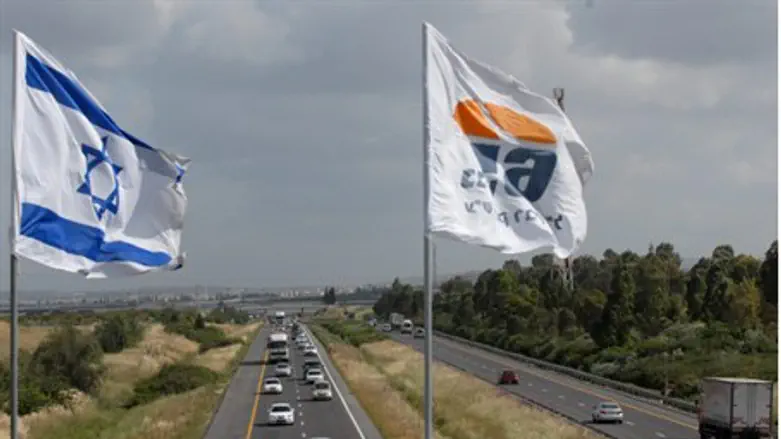
Out of all of the dozens, perhaps hundreds, of programs and projects to “open up” Israel's northern and southern peripheries, encouraging families to settle in the open spaces of the deep Negev and upper Galilee, the one that has arguably been the most successful has been the Cross-Israel Highway, also known as Road 6, say many economists.
While environmentalists have in the past (and continue) to object to the road, which is six lanes in some of its segments, because it has been built in areas that were until now considered rural, real estate values in towns with access to the road show that demand has shot up in many places. According to many economists, Road 6 has been the most effective engine of peripheral growth in Israel, putting Tel Aviv and its suburbs within commuting distance of far-flung areas that were formerly considered too far off the beaten path for most families to consider, due to a lack of professional, educational and cultural opportunities.
Now, the Transport Ministry has issued a tender for the extension of Road 6 southwards, adding some seven kilometers to the road. When completed, the new extension will bring Road 6's last exit to the Lehavim junction, south of Rahat and several kilometers north of Be'ersheva. The extension is likely to encourage more people to move to the area north of Be'ersheva, where a string of Jewish settlements, including towns and moshavim, “compete” with Rahat and numerous Bedouin villages – many of them illegal – in the area. Israeli governments have long sought ways to encourage Jews to settle in this area, and Road 6, along with the extension of Israel Railways to Be'ersheva, has fueled numerous housing projects in the settlements.
With the extension of Road 6, officials hope to further lessen commuting time to the center of the country for residents of these towns, as well as for other towns in the “outer ring” of the Be'ersheva metropolitan area. The extension is expected to cost NIS 300 million, and construction is expected to be completed by the end of 2015.
Transport Minister Yisrael Katz said Thursday that he also intends to issue tenders later this year for further extensions of Road 6, eventually bringing the road 45 kilometers further south, to Hanegev Junction, significantly south of Be'ersheva, and a few minutes away from both Yeucham and Dimona. Residents and officials in both those development towns reacted very positively to the news, which for the first time makes both communities attractive to families whose breadwinners work in the center of the country. An additional benefit, Katz said, would be to ease traffic in Be'ersheva; currently, the main highway southwards, Road 40, goes through the center of town, and significantly slows driving times for anyone going north or south. And, he added, it would make reaching IDF bases in the deep south easier.
Road 6 is currently 140 kilometers long.